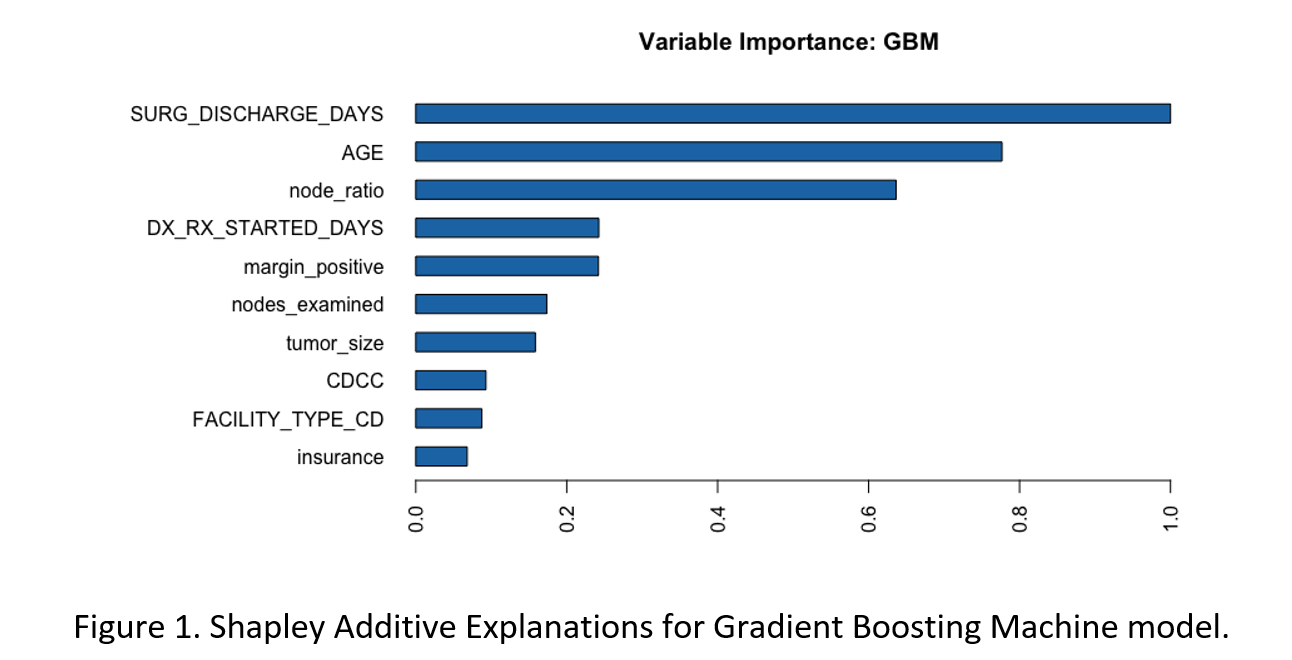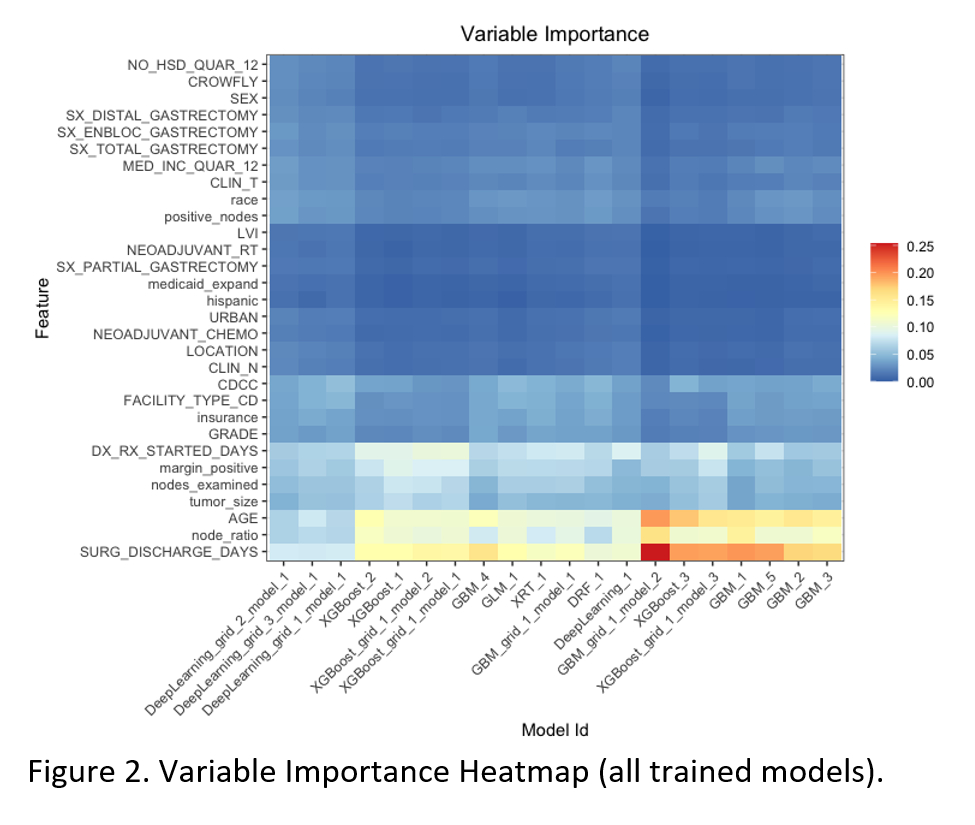FEASIBILITY OF AUTOMATIC MACHINE LEARNING (AUTOML) TO PREDICT 90-DAY MORTALITY AFTER GASTRECTOMY FOR CANCER
Gopika SenthilKumar*, Nicolas Koerber, Jennifer Merrill, Callisia N. Clarke, Ugwuji N. Maduekwe, Susan Tsai, Kathleen Christians, Thomas C. Gamblin, Anai N. Kothari
Medical College of Wisconsin, Milwaukee, WI
Background: Gastrectomy is the only curative therapy for patient with gastric cancer, however predicting early postoperative mortality is challenging. Machine learning algorithms can help predict outcomes following surgery and inform clinical decisions. Open-source automated machine learning (AutoML) frameworks provide user-friendly tools for training high quality, scalable models.
Objective: The purpose of this study is to (1) assess whether H20 AutoML can predict 90-day mortality in gastric cancer patients undergoing gastrectomy, (2) compare performance to regression modeling, and (3) identify the most important factors that predict mortality.
Methods: The National Cancer Database was used to identify stage I – III gastric cancer patients undergoing gastrectomy between 2004 - 2016. Patients with metastatic disease and palliative-intent surgery were excluded. 31 input features were used to predict 90-day mortality using 10 models and 2 Stacked Ensembles with H2O's AutoML. Model performance was measured using AUC and F-score on validation cohort. Shapley Additive Explanations and Variable Importance Heatmaps were used for model interpretability.
Results:
39108 patients were included with 31396 in the training set and 7712 in validation. Overall 90-day mortality rate was 8.8%. Patients' age ranged from 18-90 years (avg 67.6 years) and 33% of the patients were female. The highest performing models were a Stacked Ensemble (AUC=0.78) and Gradient Boosting Machine (AUC=0.78). Best-fit logistic regression resulted in AUC of 0.72. The most influential variables in the model were length of stay, age, lymph node positivity, time to initiate treatment, margin positivity, tumor size, comorbid disease score, treating facility type, and insurance type (Figure 1,2).
Conclusion:
In a cohort of gastric cancer patients that underwent gastrectomy, AutoML more accurately predicted mortality than conventional approaches. Our work provides a framework for effective, scalable, easy-to-implement, and explainable machine learning to inform clinical decision-making.
Figure 1. Shapley Additive Explanations for Gradient Boosting Machine model.
Figure 2. Variable Importance Heatmap (all trained models).
Back to 2022 Abstracts
